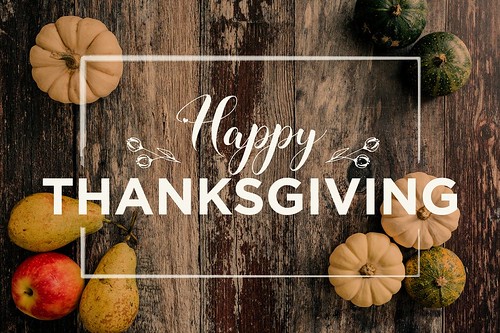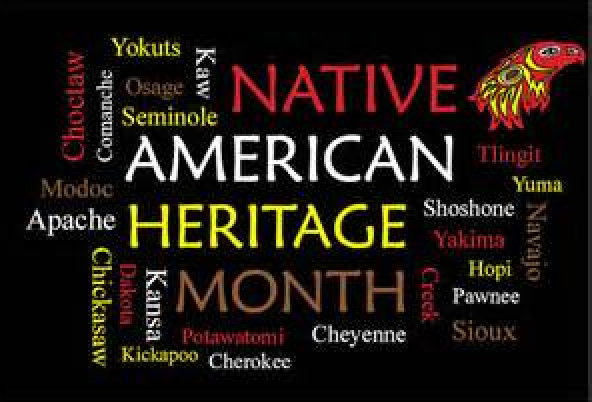Last week’s blog post looked at general law school exam studying tips and help with outlining. This week we’ll take a look at study aids that can help you with different exam formats and the types of study aids that you can use for exam review. Also, check out the recording from the Exam Preparation and Online Study Aids workshop.
Study Aids to Help You with Different Exam Formats
Writing for Essay & Short Answer Exams
- Cracking the Case Method, Legal Analysis for Law School Success
- Available through the West Academic subscription
- The exam portion of this study aid covers preparing for exams by outlining course materials and practicing exam-taking skills. An approach for analyzing exam questions and writing effective exam answers that display legal analytical skills, with illustrations drawn from actual essay exam questions and annotated answers.
- The Eight Secrets of Top Exam Performance in Law School
- Available through the West Academic subscription
- This work teaches the eight secrets that will add points to every exam answer you write. You will learn the three keys to handling any essay exam, how to use time to your advantage, issue spotting, how to organize your answer, and the hidden traps of the IRAC method. Once you have mastered these skills, you can put your knowledge to the test with sample exam questions and check your answers against those provided. A special section on how to do well on other types of exams, such as open-book, multiple-choice, or policy exams, is also included.
- Hard-Nosed Advice from a Cranky Law Professor
- Available through LexisNexis Digital Library (Lexis OverDrive)
- Chapter 6 covers exams and focuses on essay esams.
- How to Write Law School Exams: IRAC Perfected
- Available through the West Academic subscription
- Provides students of all levels with a detailed, comprehensive, and practical guide to success on law school exams. This text breaks the well-known IRAC method of legal writing into comprehensible segments and gives students the tools needed to master their law exams. Provides readers with detailed student-written examples of the IRAC method in action. Annotated with line-by-line critiques, these sample essays show readers exactly what can go wrong in a law school exam and how to fix those problems before they appear on a graded paper.
- IRAC
- Available through CALI
- This CALI lesson will cover the basic structure of written legal analysis: IRAC. IRAC stands for Issue, Rule, Application/Analysis, Conclusion. There are slightly different versions of IRAC which may be used for different legal documents. This lesson will focus on IRAC for essay exam writing. Some faculty may prefer CRAC, or CIRAC, where the conclusion is placed first. You may also learn CRREAC for writing legal memos and briefs, which stands for Conclusion, Rule, Rule Explanation, Application, Conclusion. Make sure you know your professor’s structural preferences regarding exams and other assignments. Whether you have the conclusion up front or not, all of legal analysis follows the same basic IRAC framework. It takes some getting used to, but once you understand how to properly work with the IRAC structure, you will be able to analyze any legal question.
- Law School Exams: A Guide to Better Grades
- Available through LexisNexis Digital Library (Lexis OverDrive)
- This text is a handbook for students who want to significantly improve their performance in law school. This book strips the exam format into a series of repeatable steps and building blocks. It also teaches students how to prepare for exams, instead of preparing for class, with proven time-management, outlining, and case-briefing techniques.
- Law School Exams: Preparing and Writing to Win
- Available through the Wolters Kluwer subscription
- Exercises and practice exams, with a focus on essay questions and model answers, help students identify their strengths and weaknesses, plan strategies, and organize their efforts. The text offers techniques for maximizing scores on several types of essay questions, as well as on multiple-choice and other questions. Exam anxiety is tackled by a helpful, positive perspective: the right amount of stress can serve as a motivator. Students get help in reducing anxiety to a productive level by learning how to place exams into proper perspective. Stress-management techniques are introduced. New sample flow charts and additional examples, questions, and sample answers appear throughout the text.
- Law School Without Fear : Strategies for Success
- Available through the West Academic subscription
- Chapter 15 covers exams and exam writing. Other chapters cover case analysis, the Socratic method, studying law; writing for law school; managing precious time; coping with the emotional stress of law study.
- Law School Secrets: Outlining for Exam Success
- Available through the West Academic subscription
- This book answers the most-asked questions of first, second, and third year law school students. Exam Preparation: How long should my outline be? What should I include in my outline? What secondary sources should I use? Are study groups effective? Should I swap outlines with other students? How do I prepare for open and closed book exams? Writing the Exam: What is the best way to read the exam questions? How do I schedule my time? How do I organize my answer? When do I need to assume facts? How do I impress the professor?
- Law School Success in a Nutshell
- Available through the West Academic subscription
- This text explains and gives examples of the best methods for studying and for taking exams. Chapter 12 covers exams and at the end of the book, it provides questions and model answers from actual law school exams.
- Law School Survival Manual
- Available through the Wolters Kluwer subscription
- Chapter 7 covers exams. Most of the focus is on essay exams.
- Learning Outside the Box
- Available through LexisNexis Digital Library (Lexis OverDrive)
- Chapter 13 covers essay exams. The purpose of this book is to provide research-based learning strategies for law students who learn differently. If you are a student who has been diagnosed with a learning disability or if you simply have a unique learning style, you may need to outline differently, read cases differently, and approach law school in a more active, engaged, and efficient manner. In addition to covering reading and briefing cases, the book covers outlining and tackling essay and multiple choice exams.
- Legal Writing v. Exam Writing
- Available through CALI
- This CALI lesson explains some key differences between legal writing and exam writing. First, the lesson demonstrates the relationship between legal writing and exam writing. Next, the lesson explains the differences between legal writing and exam writing. After you complete this lesson you will be able to transfer writing and analysis skills learned in your legal writing course to your final exams.
- Mastering the Law School Exam: A Practical Blueprint for Preparing and Taking Law School Exams
- Available through the West Academic subscription
- Covers both essay and multiple choice exams.
- One L of a Year
- Available through LexisNexis Digital Library (Lexis OverDrive)
- Chapter 9 covers essay exams.
- Top 10 Tips for Successfully Writing a Law School Essay (podcast)
- Available through CALI
- Professor Jennifer Martin discusses the top ten mistakes law students make in law school examinations: poor issue spotting, poor knowledge and understanding of the law, poor application of the law to the facts, giving only conclusory answers, lack of organization, errors in the facts, failure to understand the role you are given in the examination, padding, fact inventing, and question begging. She also discusses the hallmarks of a good essay answer.
- A Weekly Guide to Being a Model Law Student
- Available through the West Academic subscription.
- This book gives law students weekly checklists explaining the skills necessary to successfully navigate their first year of law school. Each chapter provides a checklist of things to do that week, such as briefing cases, going over notes, outlining classes, or doing practice questions. When a new concept is introduced, this book clearly explains the concept and its purpose and provides examples. Instead of merely providing advice, this book lays out a detailed plan for students to follow. It also includes a bank of over 100 short, medium, and long practice questions in six first year subjects.
- Writing Better Law School Exams: The Importance of Structure
- Available through CALI
- This CALI lesson begins with an explicit discussion of legal writing its structural implications. Within that specific context, the program goes on to discuss the tasks to be performed, the tools used in performing those tasks, and methods of sharpening those tools. The program concludes with some interactive opportunities to try the techniques described.
-
- Available through LexisNexis Digital Library (Lexis OverDrive)
- Chapters 5 & 6 plus Appendix C cover essay exams.
Multiple Choice Exam Help
- Law School Exams: Preparing and Writing to Win
- Available through the Wolters Kluwer subscription
- The text offers techniques for maximizing scores on several types of essay questions, as well as on multiple-choice and other questions. Exam anxiety is tackled by a helpful, positive perspective: the right amount of stress can serve as a motivator. Students get help in reducing anxiety to a productive level by learning how to place exams into proper perspective. Stress-management techniques are introduced. New sample flow charts and additional examples, questions, and sample answers appear throughout the text.
- Learning Outside the Box
- Available through LexisNexis Digital Library (Lexis OverDrive)
- Chapter 14 covers multiple exams. The purpose of this book is to provide research-based learning strategies for law students who learn differently. If you are a student who has been diagnosed with a learning disability or if you simply have a unique learning style, you may need to outline differently, read cases differently, and approach law school in a more active, engaged, and efficient manner. In addition to covering reading and briefing cases, the book covers outlining and tackling essay and multiple choice exams.
- A Methodical Approach to Improve Multiple Choice Performance
- Available through CALI
- This lesson teaches a methodical approach for all law school multiple choice questions. The step-by-step approach provides a framework to work through questions so students can more easily eliminate distractor answer choices. The lesson will thoroughly explore each step in this analytical approach.
- One L of a Year
- Available through LexisNexis Digital Library (Lexis OverDrive)
- Chapter 10 covers multiple choice exams.
- Tips for Multiple Choice Exams in Law School (podcast)
- Available through CALI
- Prof. Scott Burnham, provides students with advice on multiple choice exam questions. He looks at the parts of a question and identifies types of multiple choice questions such as those that test recall, those that draw on materials discussed in class, and those that require analysis. At the end of this lesson students will know how to decipher what type of question is being asked, how to spot the specific issue in the question, and how to eliminate the other choices.
- Multiple-Choice Questions: Wrong Answer Pathology
- Available through CALI
- This lesson teaches you how to select the right answer in a multiple-choice question by better understanding how to identify wrong answers, based on nine specific types of wrong answers.
-
- Available through LexisNexis Digital Library (Lexis OverDrive)
- Chapters 7 & 8 cover multiple choice exams.
Types of Study Aids to Help in Reviewing for Exams & Taking Practice Tests
- Acing
- Titles in the Acing Series use a unique checklist format with sequential questions that help students fully evaluate a subject. The books also present numerous hypothetical problems and sample answers.
- Available through the West Academic subscription
- Black Letter Outlines
- The Black Letter Outlines contain comprehensive outlines of particular areas of law, a capsule summary of each outline, practice examinations, and examples and review questions.
- Available through the West Academic subscription
- CrunchTime
- This study aid provides flow charts, capsule summaries, exam tips, short answer exam questions, multiple choice questions, and essay questions with model answers.
- Available through the Wolters Kluwer subscription
- E-Flash
- E-Flash Cards are online flash cards for Contracts and Torts.
- Available through the West Academic subscription
- Emanuel Law Outlines
- The Emanuel Law Outlines series is a study aid that outlines the law, gives exam tips, and offers chances for you to quiz yourself.
- Available through the Wolters Kluwer subscription
- ExamPro
- The Exam Pro Series are study aids that offer sample exams and corresponding answers with detailed analysis. Each Exam Pro title is authored by a leading law professor and recognized expert in an area of law and contains multiple choice and essay questions based on current court decisions. Detailed explanations for each answer describe the best possible choice as well as red herring answers, which helps increase law student understanding of a topic and build exam skills.
- Available through the West Academic subscription
- Gilbert Law Summaries
- Gilbert Law Summaries give students a detailed outline to prepare for exams. Each title also includes a capsule summary that is perfect for last minute review. Students can test their knowledge and fine tune exam skills with Gilbert’s actual law school exam questions (multiple choice, short answer, and essay) which are featured at the back of each outline. Every question comes with a fully explained answer, and each question is cross-referenced back to the main outline for further review.
- Available through the West Academic subscription
- Glannon Guides
- The Glannon Guides feature brief explanatory text about the topic under discussion, followed by one or two multiple-choice questions. After each question, the author explains how the correct choice was chosen. A more challenging final question in each chapter illustrates a more sophisticated problem in the area under discussion.
- Available through the Wolters Kluwer subscription
- Law in a Flash
- Law in a Flash are flash cards for legal subjects. These are available in the reserve collection and can be checked out for library use only for 2-hours at a time.
- Questions & Answers
- Q&A books consist of multiple choice and short answer questions with detailed explanations of the answers.
- Available through LexisNexis Digital Library (Lexis OverDrive)
- Sum & Substance Quick Review
- This series contains capsule summary outlines each section with a clear and concise explanation of legal concepts and terms, along with exam hints, strategies, mnemonics, charts, tables and study tips. Self-testing and diagnostic review questions facilitate application of legal concepts. Also provides capsule summaries of significant cases identifying important facts, primary issues and relevant law. Essay and multiple choice questions, model answers, and detailed explanations help with exam preparation.
- Available through the West Academic subscription
Old & Practice Exams
We have a limited number of old / practice exams available in the Law Library. The exams are available for UC law students to access remotely through the Law School Sample / Practice Exams TWEN course. Professors may also make exam materials available on their course website, particularly as time draws closer to the exam period. Please note that professors are not required to release exams to the Library, and most choose not to do so. Consequently, you may not be able to find an exam for either your class or your professor. If you do not see the Law School Sample / Practice Exams as a course when you go to TWEN, please contact Susan Boland.






